Director: Frank Hui
Co-director: Jevons Au
Co-director: Vicky Wongi
Cast: Jordan Chan, Richie Ren, Gordon Lam, Lam Suet, Kwong Leung Wong, Yueh Hua
Running Time: 97 min.
By Martin Sandison
Berlin Film Festival, now in its 66th year, has the biggest audience attendance for any film festival in the world. The diversity of films showing can be overwhelming, but from an Asian perspective there was plenty to enjoy this year. One of these was Trivisa, an exciting-sounding Hong Kong gangster flick, produced by Johnnie To.
Johnnie To, one of the most prolific and diverse directors in Hong Kong and International cinema for the last 25 years, is near unmatchable. From comedies and dramas (All About Ah Long, Running on Karma) to martial arts films (Barefoot Kid, Throwdown), To never misses a beat. The action thriller/gangster genre is his forte, and titles such as Election, The Mission, Running Out of Time and Mad Detective, are known around the world. To has always been active as a producer, and Trivisa sees him back in that chair, introducing three new young directors: Frank Hui, Jevons Au and Vicky Wong.
The story centres around three true-to-life criminals and is set in ’97, just prior to the handover. Each director takes on the storyline of each different character; this reminds me of the glorious failure that was Triangle, wherein Johnnie To, Tsui Hark and Ringo Lam directed different portions of that film. Thankfully, Trivisa succeeds on every level, unlike Triangle’s stylistic mess.
Setting a Hong Kong film around the time of the handover in this climate is sure to spell trouble with Chinese Mainland censors, and the film makers must be given credit for this bravery. The recent success of the micro-budget film, Ten Years in Hong Kong, bolsters this, and reflects a culture at boiling point. Ten Years takes a much more direct approach, with stories about how Hong Kong may be in 2025. Recently it was announced that the Hong Kong Film Awards would not be screened in Mainland China because Ten Years is nominated. The eyes of the world are turning there, and it’s to filmmakers credit that they continue to reflect the precarious nature of Hong Kong society. Trivisa manages to be subtle yet cutting in regard to this, and intelligently weaves the three characters plot strands together.
The three actors portraying the infamous gangsters are very well cast. Richie Jen is Foon, who appears at first to be the most dangerous, and his character arc is well-designed. He began his career in the early 90’s, having a bit part later in Jackie Chan’s Gorgeous and of course in Johnnie To’s Breaking News and Life Without Principle, two films that provide a stylistic template for Trivisa.
Jordan Chan is the most flamboyant and unpredictable of the three, evidenced by an early scene where he nearly rips a lackey’s ear off. His performance reminded me of Simon Yam’s portrayal of the unhinged villain Judge in Ringo Lam’s impressionistic masterwork Full Contact. A very popular actor, Chan has appeared in everything from the Young And Dangerous series to Johnnie To’s Throwdown.
Rounding of the triumvirate is Gordon Lam Ka Tung as the most intriguing of the three, a seemingly small time crook whose real character reveal at the end is magnificent. Another seasoned veteran, he built up a strong body of work with appearances in all time classics from Infernal Affairs to Ip Man. He also produced one of my favourite HK films of the last ten years, the charming small scale martial arts film Gallants.
There’s even room for a cameo by that To veteran Lam Suet, wonderful as usual.
Narratively, Trivisa is seriously intricate and powerful, with each gangsters story building to a beautiful climax. The end of the film is edge of the seat stuff, with nail biting tension and escalating violence. Unfortunately, the handling of the gunfights is a little derivative and unexciting, which detracts from the positive aspects, which are plentiful. Stylistically, it is very consistent, with each director handling the material with respect to each other. It’s great to see To grooming them, adding to his reputation as one of the saviours of Hong Kong genre cinema. Of the three, Jevons Au Man Kit is the most experienced, having directed a segment of the aforementioned Ten Years. This guy is certainly taking the bull by the horns.
In terms of allegory, the filmmakers opt for subtlety, something usually lacking in Hong Kong cinema, and they pull it off with aplomb. There are no explicit references to the handover throughout until the end, with a television showing the handover as it happened that is echoed at the beginning. The journey of the characters and the stress and paranoia they feel as they know their lives are going to change immeasurably is enough to convey this sense of where everything started to go wrong. Jordan Chan’s character breaks this mould at the end, exclaiming ‘let’s blow up the Queen!’, a natural end to a tale full of mixed loyalties and reality-based concerns about one of the most special places in the world.
Coming out of the film I was overcome with feelings I have experienced many times before with Hong Kong cinema: euphoria, glee and passion. This time it was spiked with dread, about the future of the place of my dreams. The final masterful denouement is one that will stay long in my memory, and let’s hope films like this will incite more young film makers to rebuild Hong Kong genre cinema.
Highly recommended.
Martin Sandison’s Rating: 8.5/10

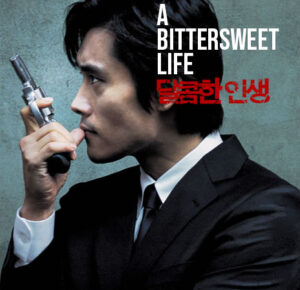
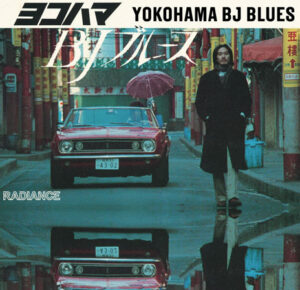
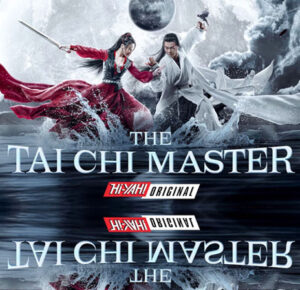

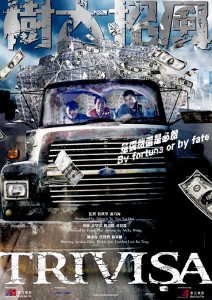
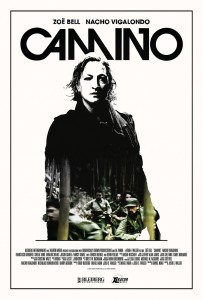
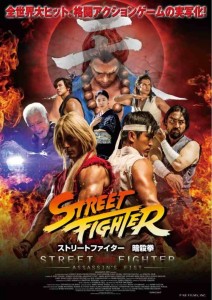


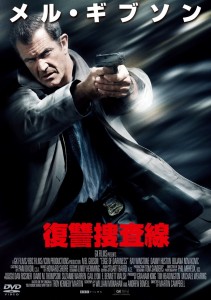
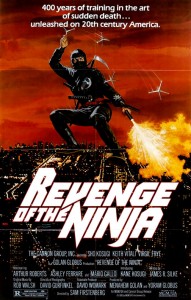
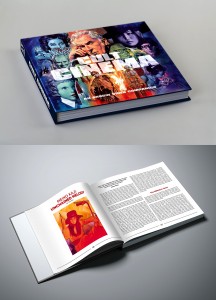

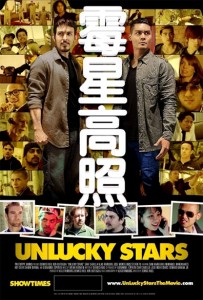









5 Comments